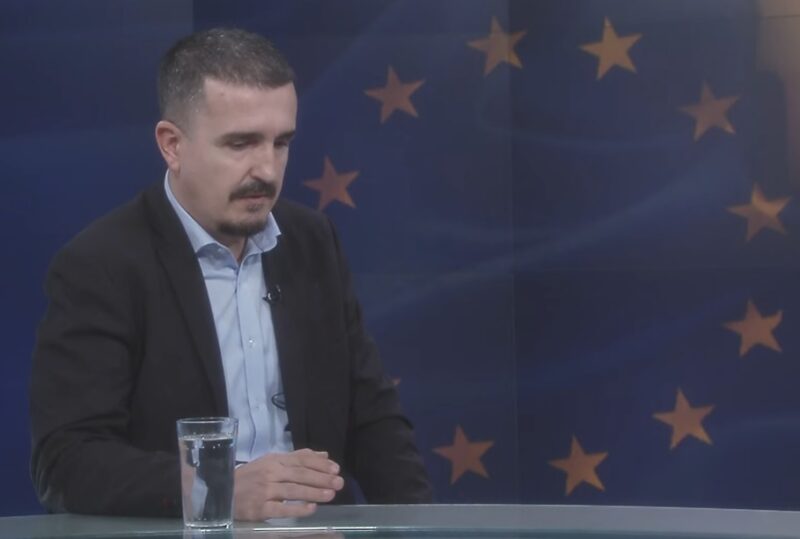The regular parliamentary elections of 2024 may produce an unexpected political mosaic, which will make it difficult, if not impossible, to create a stable government. In the absence of large coalitions, North Macedonia may find itself in the trap where Bulgaria is now…
Author: Xhelal Neziri
The ruling Social Democratic League of Macedonia (LSDM) is experiencing a drop in ratings, perhaps the biggest in its history. The difference with VMRO-DPMNE, according to the latest credible polls, ranges from 6 to 8 percent. But, this big difference is caused only by the decline of SDSM, while VMRO-DPMNE assessi manages to increase the level of support. So the Social Democrats fall, but the VMRO-ists do not rise. An indication that the two main parties, which ruled the political scene for three decades, are facing a serious existential crisis.
In the political scene of the ethnic Albanians, this crisis has not been present, but recently it continues to deepen. The fragmentation or fragmentation of political parties only increases the political apathy of Albanian citizens. There are currently 5 Albanian parliamentary parties, with a tendency to become 6, that claim to represent ethnic Albanian voters. Each of them is based on a certain city or region. The only party that so far has a reach in all the municipalities where there are Albanian voters is DUI, but it also risks being “corrupted”. The Fire Group faction, which has a strong base in Çair and Saraj, is likely to form a new political entity.
The fragmentation of the Albanian political scene in North Macedonia has always happened for three reasons: from impatience between different groups within a certain subject, from the impossibility of reforming it or because of the business interests of some persons positioned high in the party hierarchy. In the last two decades, three new entities have been born from DUI, as many from PDSH and one from BESA. Several pre-election coalitions were formed and all collapsed after the elections. This means that the number of Albanian MPs is not in accordance with their percentage in North Macedonia. Based on the last census, almost 1/3 of the country’s population are ethnic Albanians, who should be proportionally represented by 40 out of 120 deputies. However, the highest number of deputies that the Albanian parties have won is 29, while in the 2016 elections this number fell to 20 precisely because of the division of the electoral body into four political subjects. This then produced disappointment in the Albanian electorate, which recorded the lowest turnout in the last election cycles, especially after the parliamentary elections of 2014.
Macedonian voter apathy is strengthening political extreme parties, such as Levica, and at the same time creating space for new pro-Western political movements. The Albanian voter, meanwhile, is retreating to the comfort zone by not voting for any option since “they are all the same”. Voters from both camps, conditionally speaking, have one thing in common: the loss of faith that democracy can solve their problems. The latest IRI survey showed this dangerous trend. In the question of “do you believe that democracy is the best form of government or not”, only 51 percent answered positively. Even the majority of the age group from 18 to 35 years have expressed that another form of government is the same or better than democracy. This means that there is fertile ground in the country for the strengthening of extreme political, ideological or religious forces, which are essentially populist, and which can produce unpredictable situations in the country.
The regular parliamentary elections of 2024 may produce an unexpected political mosaic, which will make it difficult, if not impossible, to create a stable government. In the absence of large coalitions, North Macedonia may find itself in the trap where Bulgaria is now, which in two years went to early parliamentary elections five times, but still fails to form a government. Montenegro is also in a similar institutional crisis. These crises paralyze countries, slow down reforms and stop development due to a state of permanent campaigning.

